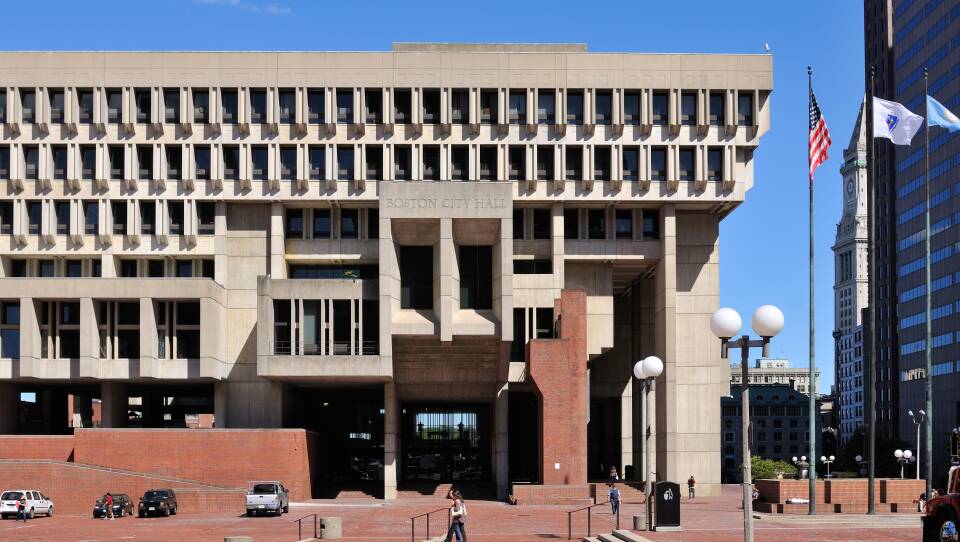A majority of Boston City Council members approved a revised budget submitted to the Council by Boston Mayor Marty Walsh, after two hours of sometimes-heated debate by Council members, and with “no” votes from several members.
The $3.6 billion budget, for the city’s 2021 fiscal year, has been the focus of intense public conversation, especially amid calls from some to cut funding to the Boston Police Department, in the wake of the killings of George Floyd and other African-Americans by police in cities around the country.
The mayor’s revised operational budget includes a significant increase in housings funds (though dependant on uncertain state lawmakers' approval of a deed "transfer" tax), as well as a 10 percent cut to police overtime funds, or about $12 million, far less than the 10 percent cut to the police department’s over $400 million overall budget called for by some activists.
That budget passed the Council by an 8 to 5 vote, with “No” votes cast by members Ricardo Arroyo, Andrea Campbell, Julia Mejia, Michelle Wu, and Council President Kim Janey.
The vote marked a somewhat rare break among the Council’s more liberal members, and it also fell largely, though not entirely along racial lines, with all five of the “No” votes cast by Council members of color, and only one member of color, Councilor Lydia Edwards, voting “Yes” to the mayor’s operational budget.
Some of those who voted “No” on the mayor’s revised operating budget voted “Yes” for the mayor’s schools and capital budgets.
Councilor Ricardo Arroyo, who represents parts of Hyde Park, Roslindale and Mattapan, was among the five members to cast a “No” vote for the mayor’s operational budget.
Noting that the city’s police department remains dozens, hundreds and even thousands of times larger than the budgets for many city services, Arroyo called the mayor’s budget insufficient to meet the needs of the present moment.
“Is this operations budget equitable? The answer for me is no, so my vote is no,” said Arroyo.
Councilor Andrea Campbell, whose district includes Dorchester and Mattapan, voted “No” on both the operational and schools budgets.
“This budget should do more to intentionally and aggressively address health disparities, to close the racial wealth gap, to close opportunity and achievement gaps for our young people,” Campbell said, adding that the budget for schools “has barely changed since COVID-19.”
But some Council members, often on the same side in more controversial votes, did not agree.
District 8 Councilor Kenzie Bok, who chairs the Council’s Committee on Ways and Means, said that while she agreed with many of her colleagues’ critiques of the revised budget, voting it down was too risky, especially with the looming threat of budget shortfalls and reduced state aid due to coronavirus.
Bok said she did not believe Council members opposing the budget had a coherent plan or counter-proposal and that voting it down now would be “like saying you can lean out over a cliff without attaching the rope that is supposed to pull you back."
Councilor Lydia Edwards was the sole member of color on the Council to join the majority “yes” vote for the mayor’s operational budget.
Edwards, who has pushed the Walsh administration on various issues, especially housing, rejected the idea that a “Yes” vote on the mayor’s revised budget amounted to ceding ground.
“I’m not going to cheerlead for this budget,” Edwards said, noting that she was disappointed that the debate had been framed as a choice between social services.
“Voting ‘No’ on this budget is not going to bring systemic change, at least not at this time,” Edwards said, adding that those who had expected her to reject the budget no matter what, “should be more disappointed because you placed your […]hopes for systemic reform in a flawed, oppressive process.”
Meanwhile, Edwards suggested those Council members pushing for a ‘no’ vote were playing “Russian roulette’ with city workers’ jobs.
“It’s not my job that’s at risk,” Edwards said.
Countering that argument – and voting “no” to all three major budget components, At-Large Councilor Michelle Wu said the Council should not give in to pressure from the administration, including the implied threat of layoffs should they not approve a budget – and rejected the implication that she and other colleagues voting “no” were being unrealistic.
“We won’t end systemic racism this next fiscal year, but no one is asking us to,” Wu said. “What we owe our constituents and our communities is to deliver the measure of justice and equity that meets this moment.”
Council President Kim Janey agreed, saying that while she was grateful for investments in housing and education and capital investments in the mayor’s budget, did not do enough to right decades of disparities, especially among Boston’s black residents.
“COVID-19 has exacerbated existing inequities, exposing for some what many of us already knew. The playing field is not level and never has been,” Janey said.
Citing a police budget that has grown year after year for decades, Janey said “People are tired of waiting” for reforms to policing.




